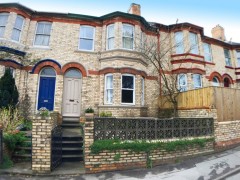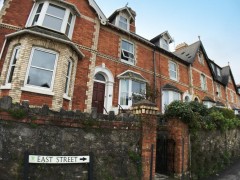TENANTS INSURANCE
As a tenant you are responsible for arranging your own contents insurance. Buildings insurance is the responsibility of the landlord, but anything that you own inside the property is your own responsibility to insure.
A standard contents insurance policy will not usually cover those who are renting. Instead there is tenants insurance which is designed to specifically cover rental properties and tenants possessions.
If your property comes already furnished it is advisable to check with the landlord what items are already covered by the landlords insurance. Any uninsured items should be added to your insurance as if any items become damaged it is likely to be the tenant’s responsibility to replace the item or pay for the damage out of their security deposits.
TENANT SECURITY DEPOSITS
When you first sign a tenancy agreement it is standard practice to pay a security deposit. A security deposit is a one off payment which is usually (but not always) equivalent to one month’s rent. The security deposit is kept by the landlord until your tenancy agreement ends. Upon moving out, the landlord will inspect the property for damage and deduct any monies from the deposit to cover the cost of any damage. If the tenant has met the terms of their tenancy agreement (i.e. paid all rents and bills etc) and where there is no damage to the property, then the security deposit will be returned to the tenant in full.
In 2007 the government introduced the Tenancy Deposit Scheme. This scheme requires landlords who are renting out their property on an assured shorthold tenancy, to place the security deposit into a government backed scheme. These deposit schemes protect the deposit throughout the duration of the tenancy agreement. At the end of the tenancy agreement the landlord will withdraw the money from the deposit scheme and will pay it back to the tenant minus any deductions required. Deductions may be made where the tenant has failed to uphold their responsibilities as laid out by their tenancy agreement. Here are a few examples of reasons why a landlord may deduct money from the security deposits.
CLEANING DEDUCTIONS
If the tenancy agreement stipulates the property must be cleaned before the tenant moves out, a deduction for cleaning the property may be made if the tenant fails to do this.
DAMAGED PROPERTY
If the property or its contents are damaged, then the tenant is responsible for repairing or replacing the item. The tenant must replace like for like, so it is not always necessary to buy a brand new item, a second hand one may be adequate. Items which break as a result of normal wear and tear do not have to be replaced by the tenant but the landlord should be notified as soon as possible. Its up to the landloard to decide on the damage caused and whether the tenant is responsive or not
Where the tenant does not replace an item the landlord may deduct a sum of money from the security deposit equal to the cost of purchasing a replacement. The tenant is within their rights to ask for receipts or estimates for any items which have been deducted from their deposit.
OUTSTANDING AND UNPAID RENT
If a tenant leaves a property owing rent to the landlord, any unpaid monies will be deducted from the security deposit. If the amount owed exceeds the amount held by the security deposit, the landlord may begin court proceedings to reclaim
the owed monies.
MISSING ITEMS IN THE HOUSE
If the landlord has reason to believe that an item has gone missing they can deduct money from the deposit to replace it.
The amount deducted should be for a similar like for like item.







